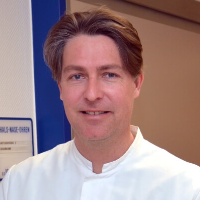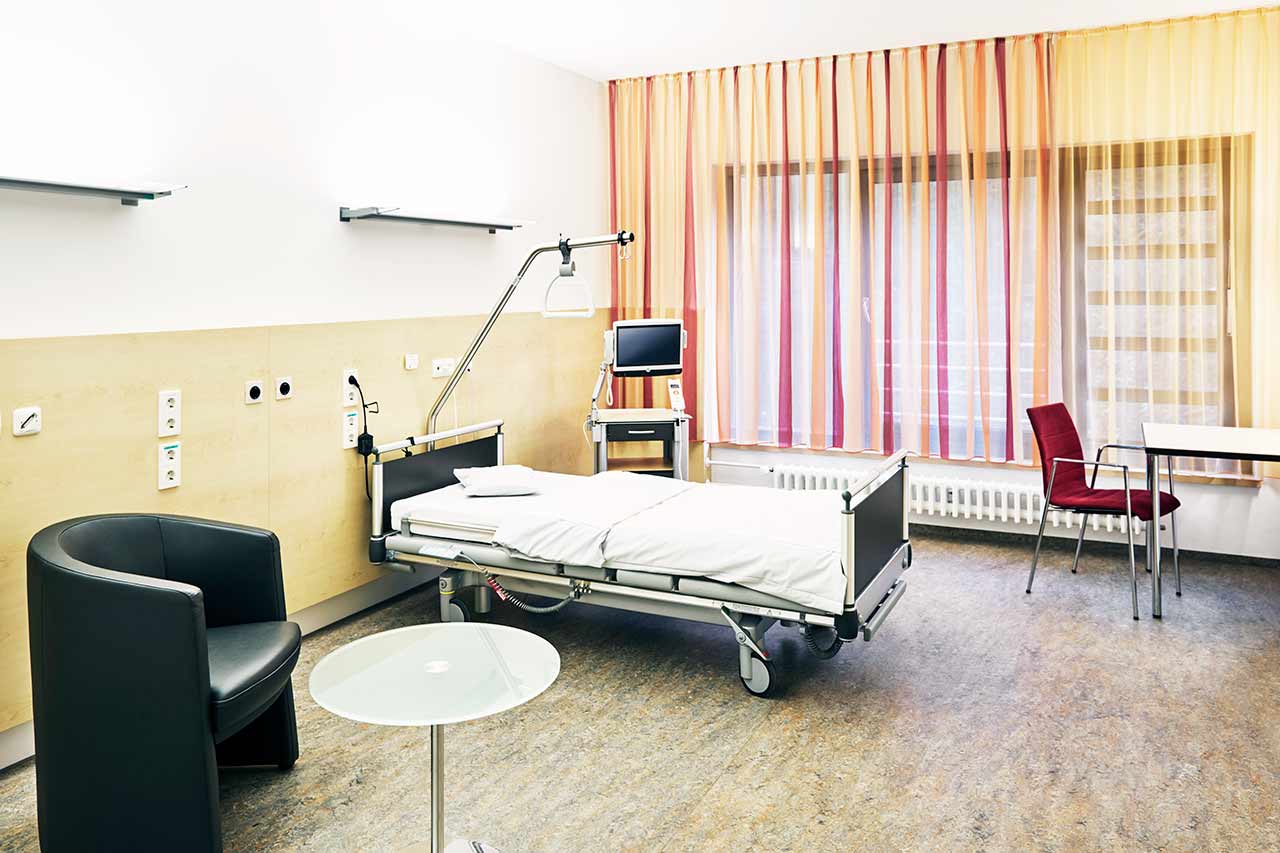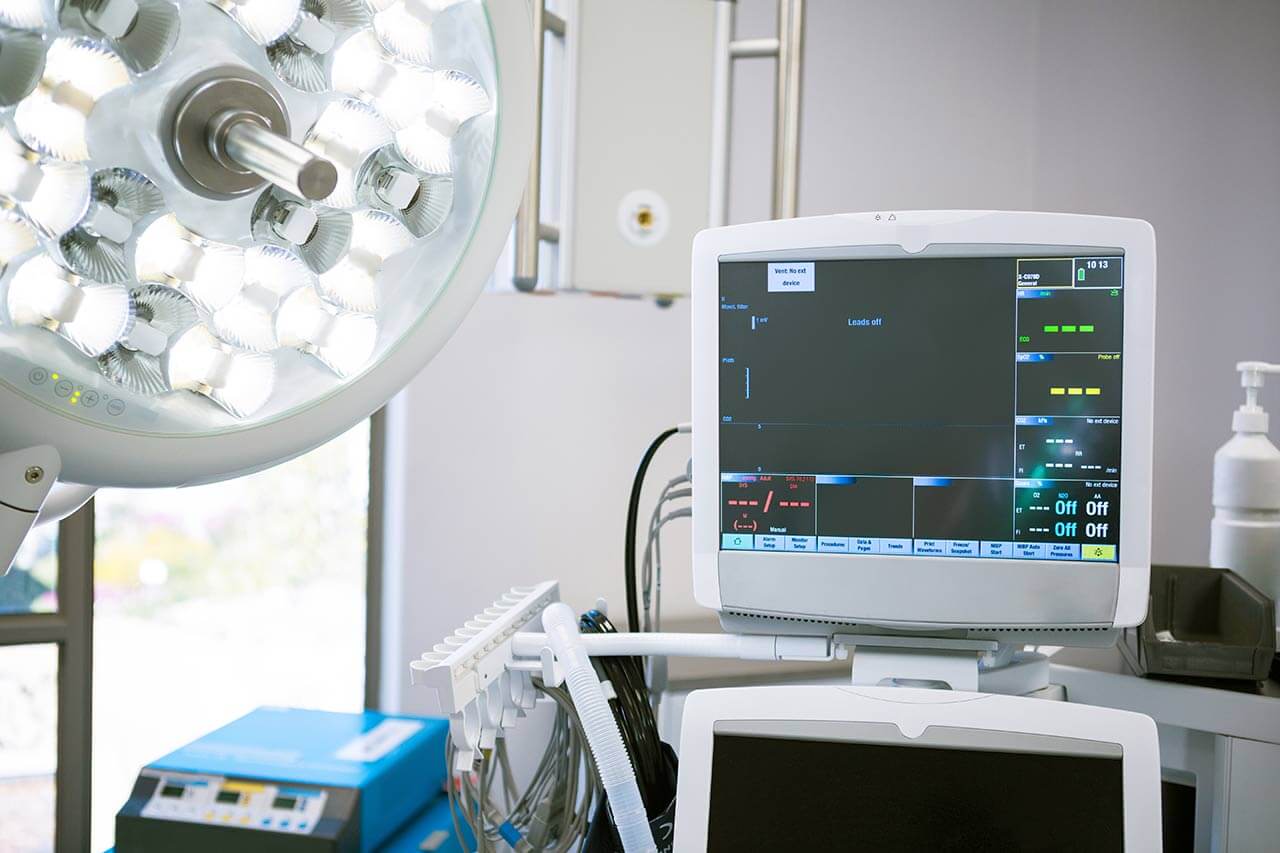
The program includes:
- Initial presentation in the clinic
- clinical history taking
- physical examination
- general otolaryngological examination
- laboratory tests:
- complete blood count
- indicators of inflammation (CRP, ESR)
- x-ray examination
- ultrasonography
- biopsy and microbiological examination (on indication 1500 €)
- nursing services
- consultation of all leading experts
- development of individual treatment plan
- written statement
Required documents
- Medical records
- US scan (if available)
- Sialography (if available)
Service
You may also book:
 BookingHealth Price from:
BookingHealth Price from:
About the department
The Department of Otolaryngology and Facial Plastic Surgery at the Hospital Oberberg Gummersbach offers all the possibilities of modern medicine for the diagnosis and treatment of diseases of the ear, nose, and throat. The department's team of doctors specializes in the conservative and surgical treatment of ENT diseases. In the department's operating rooms, surgery for head and neck tumors, surgery for hearing impairment, surgery on the nasal cavity and paranasal sinuses, and surgery for head and neck injuries are successfully performed. The team of plastic surgeons is responsible for performing blepharoplasty, septoplasty, septorhinoplasty, otoplasty, face and neck lifts, and reconstructive plastic surgery of the face and neck after resection of tumors and injuries. The department has 40 beds. The department's surgeons perform more than 3,000 surgical procedures annually. Many operations are performed on an outpatient basis without a mandatory hospital stay. The department has three state-of-the-art operating rooms equipped to perform even especially complex surgical procedures. Equipment for endoscopic, laser, and minimally invasive surgery, intraoperative monitoring devices, navigation systems, and much more are available in the operating rooms. The department also has a postoperative unit where patients are monitored around the clock. The department is headed by Dr. med. Simon Bode.
A major clinical focus of the department is the treatment of head and neck tumors. Such patients receive comprehensive medical care in a specialized center that enjoys the status of the leading medical facility in the region in its area of competence. By adhering to the standards of medical care for patients with head and neck malignancies, the department guarantees effective treatment and care at the highest possible level. Interdisciplinary tumor boards develop an individualized treatment regimen for each patient. Depending on the clinical indications, minimally invasive or organ-sparing surgery or radical resection can be performed. Surgery for malignant neoplasms is complemented by radiation therapy, chemotherapy, targeted therapy, immunotherapy, and other types of conservative treatment. If necessary, reconstructive plastic surgery can be performed in the department following resection of head and neck tumors.
The department's team of otolaryngologists successfully operates on patients with ear diseases such as hearing loss, otosclerosis, chronic suppurative otitis, perforated eardrum, and other pathologies. For the treatment of these diseases, the specialists often perform tympanoplasty, an operation during which the middle ear cavity is sanitized and the position and mobility of the auditory ossicles are restored. The department also performs Eustachian tube balloon dilatation for chronic middle ear infections using the innovative Bielefeld balloon catheter. This bloodless microsurgical intervention is performed under local anesthesia and lasts 10-15 minutes. The department's otolaryngologists also perform surgery for diseases of the external auditory canal, correction of ear malformations, reconstructive plastic surgery on the external ear after injury or tumor removal, saccotomy for the treatment of Meniere's disease, paracentesis, and other surgical procedures.
The department regularly treats patients with diseases of the nasal cavity and paranasal sinuses. The most common diagnosis in clinical practice is chronic sinusitis, i.e., inflammation of the mucous membranes of the paranasal sinuses and nasal cavity. Conservative therapy (nasal sprays, pills, etc.) is used as the first-line treatment for this pathology. If this fails, the department's doctors offer the patient surgical treatment with septoplasty, correction of a deviated nasal septum, or surgery for nasal polyp removal because, in most cases, it is these pathological changes that provoke a chronic inflammatory process. It is worth noting that operations on the nose and paranasal sinuses are performed under the control of the modern Kolibri navigation system from the German company BRAINLAB. The use of computer-assisted navigation allows for maximum accuracy and safety in surgical procedures.
The field of facial plastic surgery is represented by highly qualified aesthetic and reconstructive surgeons. The specialists perform a wide range of surgical interventions, ranging from minimally invasive to extensive plastic surgery of high complexity. The most popular surgical procedures are eyelid plastic surgery (blepharoplasty), reconstructive surgery after tumor removal or accidents, correction of congenital deformities (flap plastic surgery, free tissue transfer, and the use of epitheses), face and neck lifts, and nose and ear reshaping. The department's plastic surgeons also have extensive experience in the treatment of facial nerve palsy and the correction of facial and neck scars. In addition, cosmetic injections of Botox and hyaluronic acid are performed here to treat wrinkles.
The department's clinical focuses include the following:
- Surgical procedures for benign and malignant head and neck tumors
- Surgical procedures for diseases of the nasal cavity, paranasal sinuses, and skull base
- Surgical procedures for ear diseases, including operations to improve hearing and Eustachian tube dilation using the Bielefeld balloon catheter
- Surgical procedures for head and neck injuries
- Surgical procedures for salivary gland and thyroid gland tumors using an intraoperative neuromonitoring system
- Plastic aesthetic and reconstructive surgery on the nasal cavity, ears, face, and neck
- Other medical services
The department's therapeutic options include the following:
- Conservative treatment
- Drug therapy: pills, infusions, injections, and nasal sprays
- Surgical treatment
- Endoscopic interventions
- Microsurgical interventions
- Minimally invasive interventions
- Radiofrequency ablation
- Microscopic tonsillectomy using the BiClamp® system (innovative technique)
- Laser surgery (CO2 laser)
- Computer-assisted surgery using CAS systems
- Other conservative and surgical treatments
Curriculum vitae
Since September 1, 2021, Dr. med. Simon Bode has been serving as Head Physician of the Department of Otolaryngology and Facial Plastic Surgery at the Hospital Oberberg Gummersbach. The specialist had already worked in this department as a Senior Physician from 2011 to 2016. Before returning to the Hospital Oberberg Gummersbach, Dr. Bode was the Head Physician of the Department of Otolaryngology and Facial Plastic Surgery at the Rhineland Clinic in Dormagen.
Dr. Simon Bode graduated from the University of Cologne (1997-2004). After receiving his doctorate and admission to medical practice, he worked as an Assistant Physician in the Department of Otolaryngology and Facial Plastic Surgery at the Hospital Oberberg Gummersbach from 2005 to 2006. Dr. Bode then worked in a clinic in Cologne, after which he returned to the Hospital Oberberg Gummersbach.
Photo of the doctor: (c) Klinikum Oberberg GmbH
About hospital
The Hospital Oberberg Gummersbach is a medical complex that offers its patients top-class personalized care. The hospital was founded in 1985. Since then, it has earned an excellent reputation in the German medical arena and has gained vast experience in the provision of medical care to foreign patients. The Hospital Oberberg Gummersbach is an academic hospital of the University of Cologne, thanks to which doctors and professors at the medical center have the opportunity to participate in promising research projects of national and international significance. The hospital has 536 beds for patient stays. The medical team consists of more than 1,400 employees. Their main focus is always on the patients and their individual needs and wishes.
The hospital has 13 departments and 7 highly specialized centers. The hospital offers various fields of modern medicine, including general and abdominal surgery, thoracic surgery, oncology, hematology, gastroenterology, nephrology, neurology, orthopedics, traumatology, gynecology, mammology, radiation oncology, otolaryngology, and others. Diagnostic and treatment facilities, as well as operating rooms at the hospital, have state-of-the-art medical equipment, including devices for imaging tests, navigation systems, equipment for endoscopic and minimally invasive interventions, and laser technologies.
Highly qualified doctors and competent nursing staff work with patients. The specialists take care of patients' health around the clock, and they are always open to personal communication and ready to provide support. The primary goal of every employee at the medical facility is to provide accurate diagnostics and the most effective treatment. At the same time, important attention is also paid to the humane and respectful attitude towards patients.
The hospital has a strict quality control system: in 2003, the medical facility was certified according to KTQ requirements, and since 2014, it has been certified according to DIN EN ISO 9001:2008 standards. The Breast Center, the Colon Center, the Oberberg Cancer Center, the Arthroplasty Center, the Stroke Unit, and many other structures of the medical facilities have been certified. Patients can thus be assured of receiving high-quality medical care using the very latest technologies.
Photo: (с) depositphotos
Accommodation in hospital
Patients rooms
The patients of the Hospital Gummersbach Oberberg stay in comfortable rooms designed in light colors. The patient rooms include an automatically adjustable bed, a bedside table with a pull-out tray, a wardrobe, a table and chairs for receiving visitors, and a TV. The hospital has access to Wi-Fi. Each patient room has an ensuite bathroom with a shower and a toilet.
The hospital also offers enhanced-comfort rooms. These patient rooms have a refrigerator, a safe, and upholstered furniture. The bathroom includes a hairdryer, a bathrobe, toiletries, and towels.
Meals and Menus
The patient and the accompanying person are offered a daily choice of three menus. If, for some reason, you do not eat all the foods, you will be offered an individual menu. Please inform the medical staff of your food preferences prior to treatment.
Further details
Standard rooms include:
Accompanying person
The accompanying person may stay with you in the patient room or at the hotel of your choice during the inpatient program.
Hotel
You may stay at the hotel of your choice during the outpatient program. Our manager will help you choose the best option.





